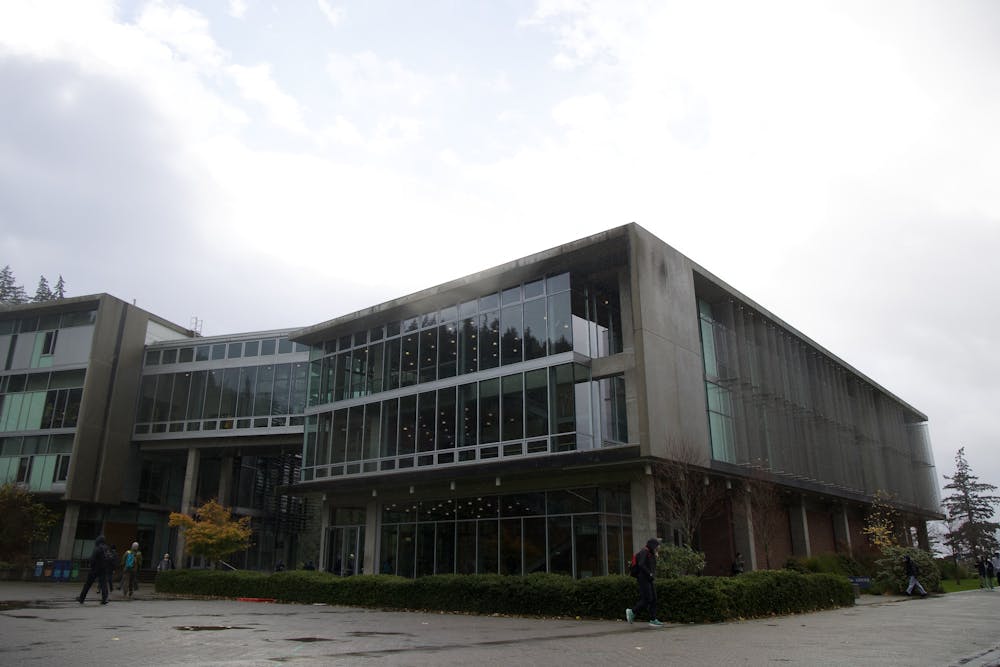This year, Western Washington University is offering a new class to help first-generation students integrate into college life.
The year-long seminar course is a reiteration of the services for first-generation students and peer mentoring previously offered by Student Outreach Services. Now, it is designed to be a course that first-year and first-generation students are eligible to register for. The course focuses on a different theme each quarter and connects students directly to peer mentors.
“With this new model, [mentors] would have the opportunity to see their students on a weekly basis in a classroom situation where [mentors] might have additional observations,” said Sara Wilson, executive director for Student Success Initiatives at Western.
Peer mentors aren’t the only important connections students make in these courses. They also have an opportunity to get to know other first-generation students who are going through the same things they are, which can be immensely important according to Kevin Delucio, associate professor at Western who was a first-generation student themself.
“If it wasn’t for connecting with other first-gen students, I would have felt even more isolated than I was already feeling,” Delucio said “It was incredibly helpful to find other students who were just as confused about the whole college environment as I was. We bonded over knowing that while we didn’t have certain advantages or privileges as most of the student body, we were still taking up space on the campus and we deserved to be there.”
Since this is a pilot program, there may be some adjustments as participants and faculty get used to the new model. So far students are forming relationships with their mentors earlier in the quarter compared to previous years when it wasn’t embedded into the classroom setting.
“Because it’s starting with the first parts of class, it’s been much easier to get students connected earlier in the term, which I am hopeful will mean that that connection will result in some strong aspects of their academic experience, too,” Wilson said.
Lisa Moeschler, New Student Services and Family Outreach manager at Western echoed that in her experience as a first-generation student, she relied on community and connections with her classmates to help her succeed since her family didn’t have that prior experience to offer.
“If [parents] don’t know how to navigate college resources or be able to help you in that way… you need to then find that yourself,” Moeschler said.
For students who may not know what’s available or who to ask, it can be intimidating.
“It was trickier to try and ask for help or feel comfortable asking for help,” Moeschler said.
This is where the importance of the peer connection comes into play. In the past two years, Central Washington University has launched a similar program, where peer mentorship is integrated into some of the courses offered for first-year or first-year transfer students.
Rachael Barry, Central’s academic success coaching coordinator, said while it is a requirement for the class that students meet with their mentor, what keeps them coming back is the relationships they form with their peers.
“Sometimes they’re coming back because they want advice or just want someone to talk to,” Barry said.
New Student Services and Family Outreach at Western heard students’ need for family resources and also created a first-generation family toolkit. This is an interactive website that can act as a helpful tool to educate family members, including videos of first-generation perspectives and a suggestions space where students can leave feedback about topics they wish to see covered in the toolkit.
Delucio said it’s important to acknowledge the fact that being first-generation often overlaps with other marginalized communities and not all first-generation students will have the same experiences or the same needs.
“We don’t want to minimize these aspects of identity that are crucial for how folks understand themselves and the communities they are a part of. There are many cultural considerations we need to inquire about and understand to fully contextualize a first-gen student and the challenges they might, and will, face,” Delucio said.
Madelyn Jones (she/her) is a city life reporter for The Front this quarter. She is a fourth-year news/editorial pre-major and anthropology minor. When she’s not working on a story, she likes reading and listening to music. You can reach her at madelynjones.thefront@gmail.com.






